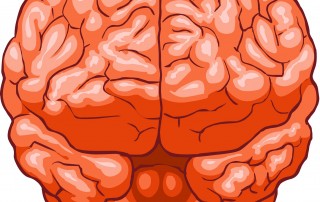My Grade 7 year at Salmo Elementary School was a year of great highs and profound lows. I discovered music for the first time, real popularity, great embarrassment, and of course, girls. Well actually I discovered girls in Kindergarten. That was also the first year that I was involved in any kind of athletic endeavour. I was tall for my age, as were a few of my friends and so when the school formed a basketball team and we played against other elementary schools we dominated. When you have three kids who are almost 6 feet tall in grade 7 and the hoops are only 8 feet tall, it is a recipe for disaster for the other teams. I tried all sports that year as they came up on the calendar, too naïve to realize that most people aren’t good at everything. The sport that was probably the worst match for me physically and mentally was cross-country running. This didn’t stop me from joining the team, of course; any excuse to get out of school or do anything extracurricular was something I would gladly sign up for, even if it meant limping along, drenched in sweat, wanting to puke, while […]
Facebook for Neurons: The Science of Anxiety
Validating Your Brain (Part 2)
Read Part 1 here Keep in mind that your brain’s task is to survive the moment, not the long-term. Without fail, the automatic behaviors that our brain engages in are accomplishing this task. However, due to its lack of perspective, the brain does not have the ability to coordinate momentary survival with long-term survival. So when your brain is acting, thinking, and feeling on your behalf, what does it think is happening? When we experience automatic behavioral responses, what is the brain trying to tell us? Think of the following example. The next time you feel an itch on your skin (which will be fairly soon, given that I have now invited you to think about it), try to physically look at the area of your skin that is itchy but DO NOT ITCH IT! Just look at the itchy place. If you can’t physically see it, try to visualize it in your mind as vividly as possible. You may even want to visualize yourself itching it. I can almost guarantee that devoid of any foreign substance interference, if the itch is generated by your brain, looking at it alone will be sufficient intervention to remove it. Give it a […]
Validating Your Brain (Part 1)
rofessor Julie Baumberger, of Capella University, once told me “You are not your brain”. While to many, this statement may at first appear confusing, to me it made perfect sense. The fact that we are able to notice what we are noticing, to think about what we are thinking about (referred to as meta-thinking by hoity-toity academic types) seems to denote some separation between the physical and automatic processes of our lower brain centres and our higher brain centres. Some may take it further and say that it is evidence of the existence of some non-physical part of ourselves, whether it be a synergistic outcome of the firing of neurons or an intangible soul. That is an entirely different discussion and one that will not be tackled here. However, I would like to talk about Dr. Baumberger’s maxim and how we might apply it in a real way to improving our experience of our existence. First, we need to look at our brain and describe what it is and what its purpose is. If it is separate from me, are we on the same page? Do we want the same things? Do we have the same strategies by which we […]






Recent Comments